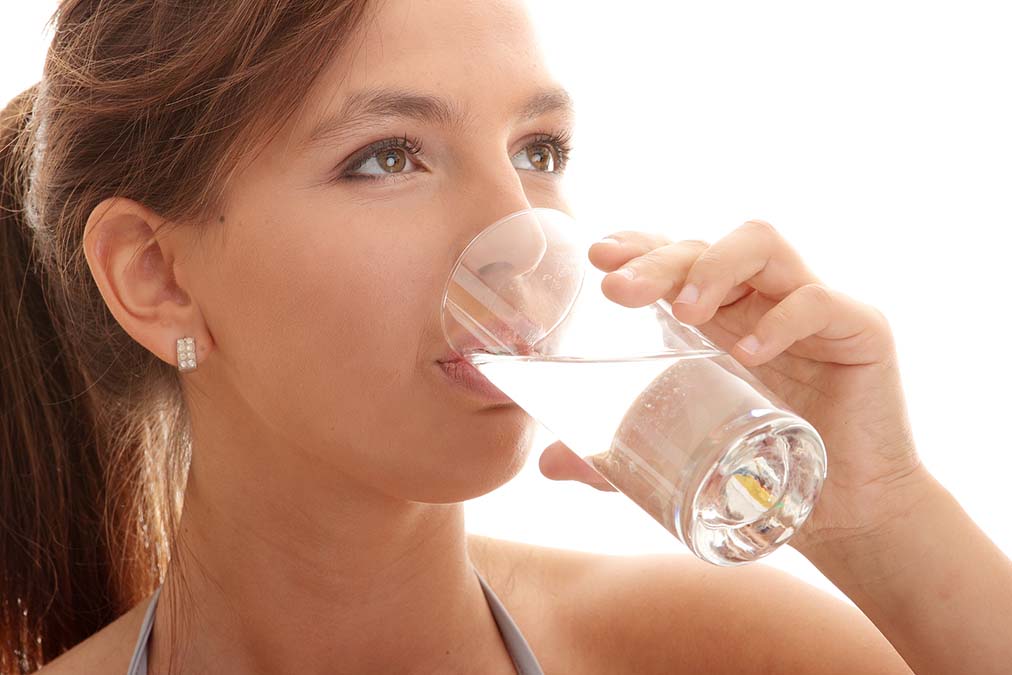 If you have chronic kidney disease (CKD), you’ve probably been advised to drink a lot of water.
If you have chronic kidney disease (CKD), you’ve probably been advised to drink a lot of water.
The thinking is that diluting potentially harmful chemicals or waste products in high amounts of water keeps your kidneys clean.
But a study in the journal Nephrology Dialysis Transplantation actually suggests that this is very dangerous advice.
In fact, drinking too much water can increase your risk of kidney failure by a terrifying 76%. And we’re not talking about very much water.
A team of researchers from a variety of French research institutions carried out a three-year study on 1,265 volunteers. All of their subjects had chronic kidney disease, and had an average age of 69 years.
They asked participants about daily fluid intake and measured the amount of urine they produced over 24 hours. They also tested the particles in their urine, such as chloride, sodium, potassium, and so on.
In addition, they recorded their subjects’ estimated glomerular filtration rates, which is the primary indicator of worsening kidney function. Next, they estimated their risk of kidney failure based on their kidney decline.
Most of these patients drank 1.6 to 2.6 liters of fluids per day (54.1 to 78.9 ounces), which shows a remarkable adherence to their doctors’ advice. Most of them produced between 1.9 and 2.4 liters of urine per 24 hours (64.2 to 81.2 ounces).
Once they adjusted these results to exclude other factors from interfering with the results, they found the best outcomes for people who drank between 1 and 1.5 liters per day (33.8 and 50.7 ounces).
Compared to the participants in this group, all the others had higher risks for kidney failure.
The risk was:
- 1. 88% higher for those who drank less than 0.5 liters (16.9 ounces),
- 2. 59% higher for those who drank between 0.6 and 1.0 liters (20.3 and 33.8 ounces),
- 3. 76% higher for those who drank between 1.6 and 2.0 liters (54.1 and 67.6 ounces), and
- 4. 55% higher for those who drank more than two liters (67.6 ounces).
This shows clearly that the more-water advice is not the right way to go. Instead, doctors should recommend a moderate water intake.

 Overcoming IBD
Overcoming IBD Multiple Sclerosis
Multiple Sclerosis Banishing Bronchitis
Banishing Bronchitis Gum Disease Gone
Gum Disease Gone Overcoming Onychomycosis
Overcoming Onychomycosis Neuropathy No More
Neuropathy No More The Prostate Protocol
The Prostate Protocol Brain Booster
Brain Booster
 Ironbound
Ironbound
 Solution for Shingles
Solution for Shingles
 The Bone Density Solution
The Bone Density Solution
 The Ultimate Healing Protocol
The Ultimate Healing Protocol
 The Parkinson's Protocol
The Parkinson's Protocol
 The Chronic Kidney Disease Solution
The Chronic Kidney Disease Solution
 Overthrowing Anxiety
Overthrowing Anxiety The Fatty Liver Solution
The Fatty Liver Solution The Hypothyroidism Solution
The Hypothyroidism Solution
 The End of Gout
The End of Gout The Blood Pressure Program
The Blood Pressure Program
 The Oxigized Cholesterol Strategy
The Oxigized Cholesterol Strategy
 Stop Snoring And Sleep Apnea Program
Stop Snoring And Sleep Apnea Program
 The Arthritis Strategy
The Arthritis Strategy The Vertigo & Dizziness Program
The Vertigo & Dizziness Program The 3-Step Diabetes Strategy
The 3-Step Diabetes Strategy Hemorrhoids Healing Protocol
Hemorrhoids Healing Protocol The Erectile Dysfunction Master
The Erectile Dysfunction Master Weight Loss Breeze
Weight Loss Breeze The IBS Program
The IBS Program The Insomnia Program
The Insomnia Program The Migraine and Headache Program
The Migraine and Headache Program The Neck Pain Solution
The Neck Pain Solution The Menopause Solution
The Menopause Solution The Ejaculation Master
The Ejaculation Master The TMJ Solution
The TMJ Solution The Acid Reflux Solution
The Acid Reflux Solution The Fibromyalgia Solution
The Fibromyalgia Solution The Psoriasis Strategy
The Psoriasis Strategy